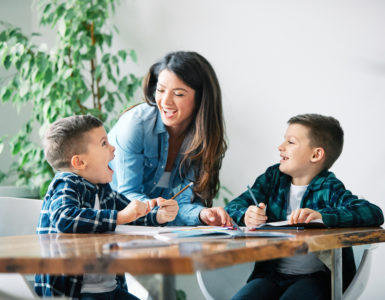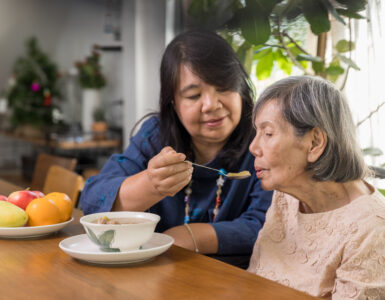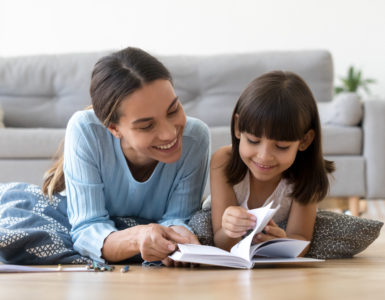To enjoy parenting, you need to do it mindfully.
Parenting is a rollercoaster ride, filled with ups and downs that can leave us feeling overwhelmed. But what if there was a way to experience more highs and fewer lows? Enter mindful parenting.
Studio 5 Parenting Contributor Heather Johnson believes this concept is the key to a happier you and happier kids. She shares the principles of mindful parenting and how it can transform your experience as a parent.
How to Enjoy Parenting by Doing it Mindfully
Understanding Mindfulness
Before delving into mindful parenting, let’s clarify what mindfulness means in this context. Mindfulness, often thrown around as a buzzword in recent years, is simply being fully present in the moment without judgment. It’s about experiencing life as it happens, without attaching labels or evaluations to what’s occurring. When we practice mindfulness, we become aware of our thoughts, emotions, and surroundings without passing judgment on them.
The Power of Mindful Parenting
So, why is mindfulness beneficial in the realm of parenting? According to Heather, mindful parenting leads to more joy for both parents and children. When we embrace mindfulness, we’re better equipped to recognize our own emotions, assess situations objectively, and respond thoughtfully. It reduces anxiety by preventing us from dwelling on the past or worrying about the future.
For kids, the benefits are equally compelling. They tend to exhibit less aggression and better behavior when their parents practice mindful parenting. Essentially, by mastering the art of mindfulness, we can navigate the complexities of parenthood more gracefully and experience greater fulfillment in the process.
Dispelling Misconceptions About Mindfulness
Mindfulness is not about meditating all day or achieving a constant state of zen-like peace. It’s not about erasing all thoughts from your mind – rather, it’s about observing your thoughts and choosing how to respond to them. In short, it’s a practical and achievable skill for parents, even those with busy lives.
How to Practice Mindful Parenting
- Withhold Self-Criticism: One of the first steps in mindful parenting is to stop beating yourself up. Self-compassion is essential. Instead of judging yourself for perceived parenting mistakes, offer yourself grace and understanding. This practice creates the mental space necessary for mindful parenting.
- Mind the Gap: There’s a space between receiving information and reacting to it. Mind that gap by pausing before responding. It’s in this space that you can choose how to react consciously instead of impulsively.
- Assess Your Needs: Sometimes, mindful parenting requires new tools or resources. Assess what you need to become a more mindful parent and seek them out. This might involve reading, seeking advice, or simply spending time reflecting on your parenting journey.
- Expect of Only You: Shift your expectations from others to yourself. Ask, “what do I expect of myself in this situation?” This approach empowers you to take control of your reactions and responses, rather than relying on others to meet your expectations.
- Respond, Don’t React: Reacting is emotional, while responding is intentional. When your child’s emotions rise, pause and respond with intention rather than reacting emotionally. This maintains a calm and mindful atmosphere in your interactions.
- Keep the End Goal in Mind: Remember that your ultimate goal as a parent is to raise mindful, emotionally intelligent children. Lead by example and instill these qualities in them by practicing mindfulness yourself.
Mindful parenting is not about achieving perfection – it’s about embracing the journey and nurturing a harmonious parent-child relationship. By incorporating these principles into your daily life, you can experience more joy in parenting and equip your children with invaluable life skills.















Add comment